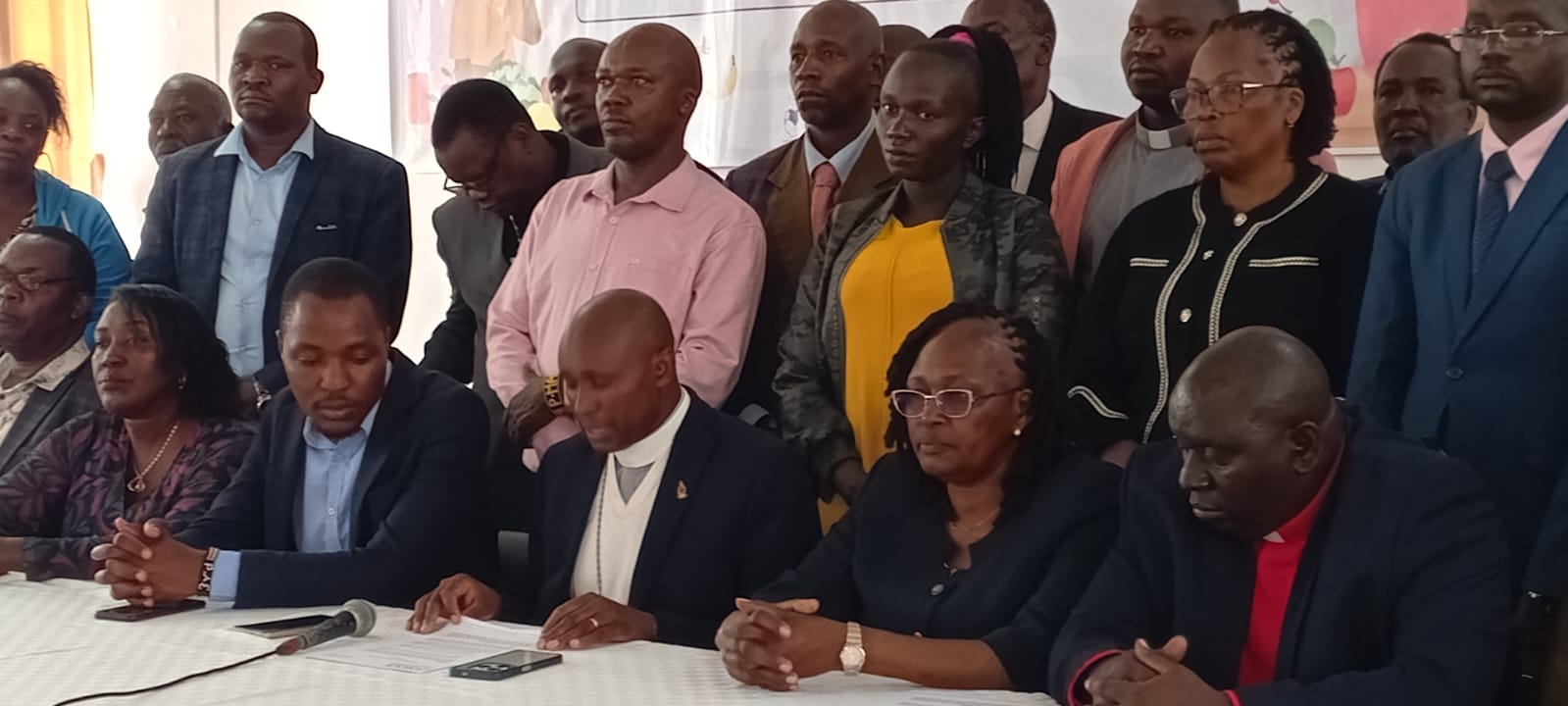Introduce nutrition in schools to combat lifestyle diseases, Clerics urge Government

BY Gerald Mukembu
The National Council of Churches of Kenya (NCCK) has called on the Kenya Institute of Curriculum Development and the Kenya National Examinations Council to incorporate nutrition into the school syllabus as a strategy to reduce non-communicable diseases (NCDs).
James Kimathi, NCCK Upper Eastern Region Vice Chairman, delivered the statement on behalf of the clergy, highlighting that NCDs have reached pandemic levels, accounting for 39% of deaths nationwide and 50% of all hospitalizations.
“There is hardly a family in Kenya that has not been affected by conditions such as cancer, hypertension, diabetes, and heart disease,” Kimathi noted, emphasizing the significant financial burden these illnesses impose. He revealed that individuals with NCDs spend over KSh 150,000 annually on outpatient care alone.
Kimathi called for increased government funding to combat non-communicable diseases, criticizing the government’s commitment of only KSh 8 billion for the national strategy from 2022 to 2026, against a total budget of KSh 377 billion. “This figure fails to reflect the struggles faced by those living with NCDs,” he stated during a press conference held at Gitoro in North Imenti, Meru.
He expressed concern that the financial strain from healthcare costs drains the limited savings of many Kenyans. “We urge the Ministry of Health to lead a national campaign addressing the threats posed by non-communicable diseases,” Kimathi added.
Kimathi further recommended that the government declare NCDs a national emergency to mobilize resources from all stakeholders. He referenced past government-led campaigns targeting health crises like malaria in 2010 and HIV/AIDS in the 1990s as models for action.
To enhance public health standards, he proposed implementing warning labels on products high in saturated fats, sugars, and sodium. “These warning labels should be clear and consistent in size, color, and presentation,” he remarked.
Kimathi commended the Ministry of Health for finalizing the nutrient profile model and urged the Kenya Bureau of Standards (KEBS) and the Competition Authority of Kenya to adopt this model to safeguard public health.
Highlighting a troubling trend, he reported an alarming increase in the number of children diagnosed with NCDs, calling for a nationwide campaign to regulate foods targeted at children that are high in sugar, salt, and unhealthy fats. He also urged politicians to concentrate on improving public services rather than engaging in early political campaigns.
In a final note, Kimathi reinforced the NCCK’s stance on maintaining the church as a neutral space. He urged fellow clergy to adhere to guidelines set forth by the NCCK executive committee, stating that politicians should be treated like all other congregants, with no special privileges. Monetary contributions should be treated as offerings without announcement, and political leaders should address congregants outside the church premises.
— End —




